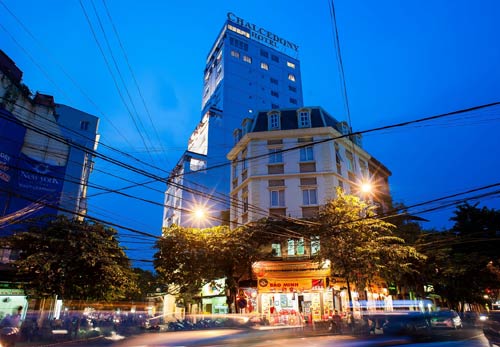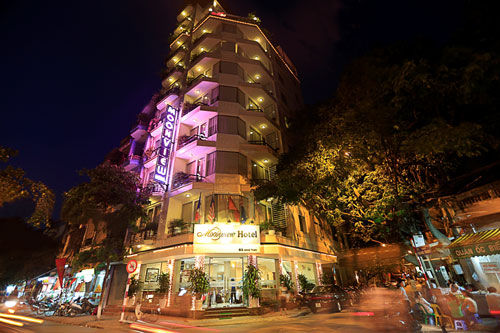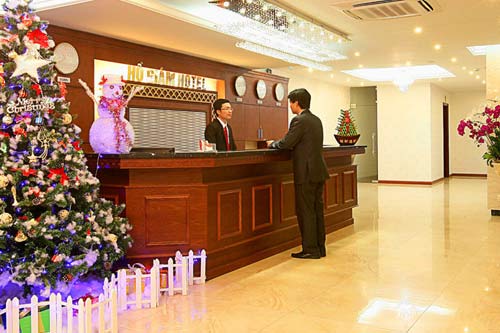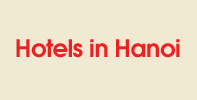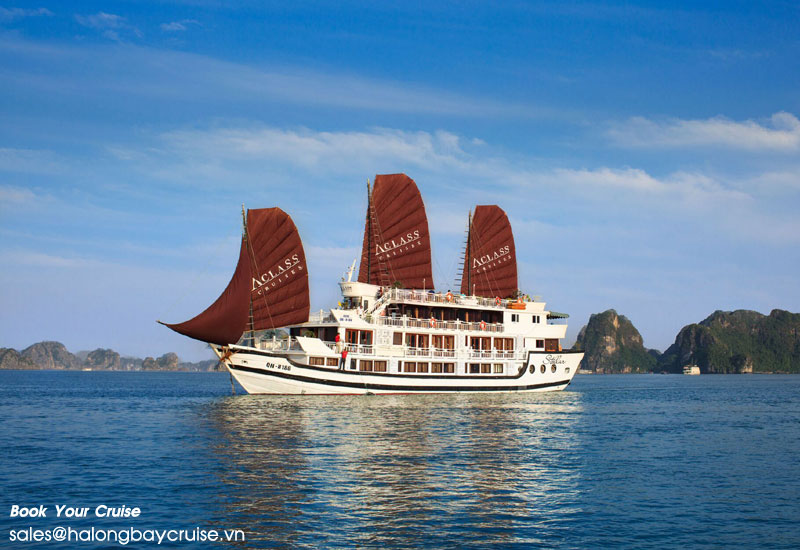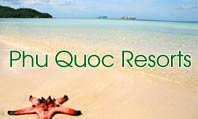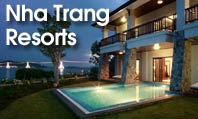How should I take money to Vietnam?
Bring a combination of debit and credit cards, as well as some USD cash. ATMs are widely available in airports, major cities and towns and issue Vietnamese dong
Money
- How should I take money to Vietnam?
Bring a combination of debit and credit cards, as well as some USD cash. ATMs are widely available in airports, major cities and towns and issue Vietnamese dong. Most hotels change traveller's cheques and cash at reasonable rates. Credit cards can be used in a number of shops and restaurants in major centres. If you bring traveller's cheques, it is best to use USD, but these are now becoming harder to cash.
- How much money will I need each day for food and other expenses?
Vietnam offers excellent value for your money. Allow approximately 20 USD per person for day-to-day living, which will buy you lunch and dinner at good local restaurants (your breakfast is always included), as well as refreshments during the day. Transport such as taxis and cyclos is cheap, and should cost you no more than 5 USD a day on average, and often much less. If you are travelling independently, you will need to factor in any entrance fees, which may be between 1-5 USD. High end and Western restaurants will cost more. Prices of alcohol varies. Beer is generally cheap, especially in local restaurants however wine is expensive, even by Western standards.
- Do I need to tip in Vietnam?
Tipping inspires great service and is an entrenched feature of the tourism industry in Vietnam. In local markets and basic restaurants we suggest rounding your bill up to the nearest 1 USD. In more up-market restaurants 5% to 10% is appropriate. If you are happy with the services provided by your guides and drivers, we suggest a tip of 3-5 USD per person per day for guides and 2 USD per person per day for drivers. Of course you are free to tip more or less as you see fit, depending on your perception of service quality.
- Will I need to bargain for everything I want to buy?
Bargaining for souvenirs has long been the norm in Vietnam, however 'fixed price' boutiques are becoming more common. Even then, you may be able to garner a discount, especially if you buy more than one item. As in all Asian countries, ‘saving face’ is important, so bargaining should be good-natured. In some cases you will be able to get a 50% discount or more, at other times this may only be 10%. And it's never a good idea to ask whether someone else got it for less – chances are they will have! In most cases you will not need to bargain for basic items such as bottled water, toiletries and food.
Health & Safety
- What vaccinations will I need to have?
Some of the diseases known to exist in Vietnam include hepatitis A and B, typhoid, tuberculosis, Japanese encephalitis, diphtheria, tetanus, polio, rabies and HIV/AIDS. Consult with your local doctor or a specialist travel medical centre for up-to-date health information on vaccinations and medicine for your trip at least one month prior to departure.
- Are western toilets available?
All hotels and guesthouses, including home-stays, are equipped with western toilets. Overnight trains usually have the options of Asian squat-style toilet at one of the carriage and a western-style toilet at the other. On long bus drives, we endeavour to time stops according to acceptable and hygienic toilet facilities which will, in most cases, include a western toilet. We recommend that you carry hand sanitizer and toilet paper.
- Is Vietnam a safe country?
Vietnam is generally a safe destination by world standards, but usual common sense precautions are advisable. In recent years petty street crime in large cities has risen. Always keep a photocopy of your passport, airline tickets and credit card numbers, and a detailed record of your traveller's cheques. You should leave valuables in hotel safety deposit boxes wherever possible. In large cities, such as Ho Chi Minh City and Hanoi, we recommend you wear as little jewellery as possible and keep your spending money close to your body in a secure place when out on the street.
- I'm travelling alone – is it safe to go out at night?
Our hotels are centrally located in safe neighbourhoods so provided you take the usual common sense precautions, you should feel safe going out at night, even on your own. Alternatively, most hotels we use have a restaurant. We recommend you take taxis rather than cyclos when travelling at night; taxis in Vietnam are numerous, metered and inexpensive. To assist in finding your way back to your hotel, make sure you obtain a hotel address card, to show drivers where you want to go.
- Is Vietnam a good place to take children?
Vietnam is very child-friendly. The Vietnamese are family oriented and regularly travel with their own children during holiday periods. If you are travelling with children aged 5-17, our Family Journeys, featuring a combination of fun and educational activities, might best suit your needs. Some hotels cater well to families with triple share options, or adjoining rooms.
Food & Water
- Can I drink the water?
We advise against drinking tap water in Vietnam. Bottled water provided on a complimentary basis by most hotels and is otherwise inexpensive and readily available.
- Is there vegetarian food and western food available?
Vegetables and vegetarian dishes feature prominently in Vietnamese cuisine, though even vegetable dishes may use fish sauce as a base so if you are a strict Vegetarian it's a good idea to ask about the ingredients used. Western food is widely available in major centres though is generally more expensive than Vietnamese.
- I have special dietary requirements/allergies – can these be accommodated?
It is generally possible to accommodate special dietary requirements and allergies, though it is a good idea to have someone prepare a Vietnamese translation of the details of your needs to show restaurant staff. Even non-seafood dishes may feature shrimp or fish sauce as a base.
- What general food and water precautions should I take?
We advise you to use bottled water, even to clean your teeth. Always wash your hands thoroughly, particularly after handling local money. Ensure meats are thoroughly cooked. It is not necessary to avoid salads and herbs out of hand but remember uncooked foods do carry a greater risk. In general, establishments that cater to Western tourists make their own ice on the premises from bottled water. Elsewhere, ice is made from filtered water that is delivered in blocks from local factories. If in doubt as to the origin of ice, it's a good idea to ask.
Getting There and Away and Around
- What is the flight time to Vietnam?
From Australia: Flight times range from 9 Hours (Sydney, Melbourne, Perth) to 12 hours (Adelaide, Brisbane)
From New Zealand: 13 hours from Auckland
From UK: 14 hours from London
From USA: Flight times range from 16 hours (Los Angeles) to 19 hours (New York)
- Do I need a visa for Vietnam?
To enter Vietnam you will need a passport with at least six-months validity and a tourist visa, which you must obtain prior to arrival. If you are entering Vietnam twice during your stay you will need a dual-entry visa. For further details see our visa information page, speak to one of our experts or contact your local Vietnamese consulate or embassy.
- What are the trains like?
Train travel can be a great way to experience Vietnam. The most common routes are the overnight journeys between Hue and Hanoi and Hanoi and Sapa. We book our travellers in 4-berth soft sleeper compartments, which are clean and comfortable. Most luggage stows easily under the bottom berth or in racks above the top berth. We recommend bringing earplugs as the train is quite noisy and it can be difficult to sleep at night.
- Are the domestic flights safe and reliable?
Most domestic flights within Vietnam are with Vietnam Airlines. The fleet is modern and comfortable, with most flights using Airbus A320 or Fokker 70 aeroplanes, however schedules frequently change and this can result in alterations to your itinerary.
- Is it safe to catch a taxi or cyclo at night?
We generally advise against taking cyclos at night unless they are registered with a hotel. Taxis are safe and metered provided you use a reputable company. To assist in finding your way back to your hotel, make sure you obtain a hotel address card, to show drivers where you want to go.
Packing
- Should I take a suitcase or a backpack?
We recommend one piece of medium-sized lightweight luggage with wheels and preferably a soft cover. If you are travelling on a train during your stay, bear in mind that you will need to travel with your luggage in your compartment, where space is limited, as there is no separate baggage car.
- What is the baggage allowance on domestic flights?
The baggage allowance in economy class with Vietnam Airlines on domestic flights is one piece of checked luggage weighing no more than 20kg (44 pounds), plus one piece of hand luggage weighing no more than 7kg (15 pounds).
- What should I pack for a holiday in Vietnam?
Please refer to the following checklist as a guide. You may need to carry your own bags at certain stages during the trip so you should be able to lift them! Laundry service is available in most hotels but can be expensive.
Travel documents - passport, visas, travel insurance certificate, air tickets,
Money - traveller's cheques/cash/credit card and money pouch
Day pack and/or shoulder bag that can be slung across the body for security
First aid kit
Medication/prescriptions (it is a good idea to have a doctors letter if you are carrying a large amount of medication), travel sickness tablets if required
Torch/flashlight
Travel plug/international adapter
Insect repellent
A range of comfortable, quick dry, loose fitting clothes
Sunscreen, hat and sunglasses
Swimming costume
Lightweight travel towel
Ear plugs/eye mask
Comfortable walking shoes
Camera, film and/or memory cards with spare batteries (or battery charger)
Raincoat/umbrella
Waterproof jacket
Clothes for temples - long pants or long skirts, long sleeve tops, shoes which are easy to slip on/off
Warm clothes for the winter months (Nov to Feb)
- Will I need wet weather gear?
We do advise you bring wet weather gear however raincoats and umbrellas can easily be purchased in Vietnam.
Communications & Technology
- Will I be able to use my mobile phone?
Mobile phone networks cover much of the country and global roaming is available – check with your service provider before leaving home.
- Are there many internet cafes in Vietnam?
You will find internet cafes in almost every town and city, although the service can be slow in regional areas. Rates are generally reasonable. Most hotels offer an internet service however rates are generally higher than in internet cafes.
- I am travelling with my laptop – will I be able to access WiFi?
WiFi is becoming increasingly common in the major cities of Vietnam where it is available in cafes and other WiFi hotspots. WiFi is also offered in some hotels, either in-room or in certain public areas such as the lobby. Check with your travel expert for availability of WiFi at your chosen hotel/s before departure.
Responsible Travel
- I would like to bring some gifts for the local children – what do you suggest?
Gifts such as text books and pencils are most appropriate and best given to organisations (such as schools or clinics) rather than to individuals, as distribution through a community channel is more likely to occur equitably, and with dignity. We advise against giving gifts directly to children on the street, at home or in village communities. Gift giving creates inequality within communities and encourages children to start begging. Giving money (even to children who offer to act as guides) can also make children the primary income earners in their family, resulting in long-term school truancy.
- What are some of the local customs I should be aware of?
Dress standards are fairly conservative, especially outside major cities. When visiting religious sites men often need to wear long trousers and women a long skirt or sarong. You should try to keep your shoulders covered, especially outside major cities. Like many Asian countries, the concept of 'saving face' is important in Vietnam. Try to resolve any difficulties in a calm, friendly matter. Losing your temper will not get you anywhere.
TOP HOTELS
Promotions
TOP TRAVEL DESTINATIONS
HOTEL OFFERS
Vietnam Hotels
Vietnam Hotels: Hotel84.com offers the choice of over 2500 hotels in Vietnam. Our hotel reviews will help you find the best deal, while you are in Vietnam. Find hotels and book great Vietnam hotel at great prices.


